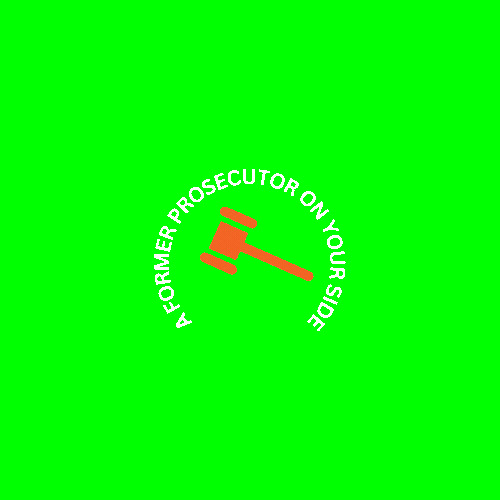Best Lawsuits & Disputes Lawyers in Maryland
Share your needs with us, get contacted by law firms.
Free. Takes 2 min.
Or refine your search by selecting a city:
List of the best lawyers in Maryland, United States
About Lawsuits & Disputes Law in Maryland, United States
Lawsuits and disputes law in Maryland covers the legal processes and rules for resolving disagreements between parties. These disputes can involve individuals, businesses, organizations, or government entities. The resolution process typically occurs in Maryland state courts but can sometimes involve federal courts. Such cases may concern contracts, property, business relationships, injuries, employment issues, and more. The ultimate goal is to provide fair solutions, enforce rights, and ensure accountability according to Maryland law.
Why You May Need a Lawyer
Using a lawyer can be crucial for successfully navigating lawsuits and disputes. Common situations where people may require legal help include:
- Being sued by another person or business
- Wanting to file a lawsuit to resolve a contract or property dispute
- Dealing with personal injury or insurance claims
- Facing issues with a landlord, tenant, or homeowner association
- Going through business partnership disagreements
- Addressing defamation, slander, or libel claims
- Opposing or defending debt collection efforts
- Encounters with consumer protection or fraud matters
- Resolving boundary, easement, or zoning disputes
- Managing employment-related complaints such as wrongful termination
Lawyers provide invaluable help with understanding procedures, protecting rights, negotiating settlements, and advocating in court.
Local Laws Overview
Maryland has specific laws and court rules that impact how lawsuits and disputes are handled:
- Statute of Limitations: Deadlines exist for filing most lawsuits. For example, personal injury cases generally have a three-year limit from the date of injury.
- Small Claims: Maryland's District Court handles small claims up to five thousand dollars. These cases follow simpler procedures and often do not require a lawyer.
- Types of Courts: Most civil lawsuits begin in the District Court or Circuit Court, depending on the amount in controversy and the case type.
- Mediation & Alternative Dispute Resolution: Some courts require parties to attempt mediation or other alternative solutions before proceeding to trial.
- Pre-suit Requirements: Certain claims, such as those against state or local government, require specific notice before filing a lawsuit.
- Comparative Negligence: Maryland follows the contributory negligence rule, meaning if a party is found even slightly at fault, they may be barred from recovering damages in some personal injury cases.
- Evidence & Discovery: Maryland courts set strict rules on what evidence can be introduced and how parties exchange information before trial.
- Local Court Rules: Every county may have additional procedures or requirements, so it is important to check with your local courthouse.
Understanding these local laws and court processes is vital for anyone involved in a lawsuit or legal dispute in Maryland.
Frequently Asked Questions
What is the first step if I want to file a lawsuit in Maryland?
Generally, you file a complaint with the appropriate court, serve the other party with legal notice, and pay any required filing fees. Before filing, it is often helpful to consult with a lawyer to evaluate your case.
How long do I have to sue for a breach of contract?
In Maryland, the statute of limitations for most written contract cases is three years from the date the breach occurred, unless the contract is under seal, in which case it could be twelve years.
Can I represent myself in a Maryland court?
Yes, you have the right to represent yourself, a practice called "pro se" representation. However, the processes and legal standards can be complex, so consulting a lawyer is strongly recommended.
What is mediation and does Maryland require it before trial?
Mediation is a process where a neutral third party helps both sides reach an agreement. In some Maryland jurisdictions and in certain types of cases, courts may require parties to attempt mediation before scheduling a full trial.
What happens if I lose my case in Maryland?
If you lose, you may owe damages or court costs to the other side. You may have the right to appeal the decision, but there are strict time limits and procedures to follow.
Can I recover attorney fees if I win my lawsuit?
Generally, each side pays their own attorney fees unless a contract or specific law provides otherwise. In some cases, a court will order the losing side to pay the winner’s fees.
How do I respond if I am served with a lawsuit?
You must file a written response, called an answer, within a set timeframe (typically thirty days in Maryland state courts). Failing to respond can result in a default judgment against you.
What is small claims court and when should I use it?
Small claims court is designed for individuals seeking to recover five thousand dollars or less in damages. It is often faster, less formal, and costs less in legal fees.
What does "contributory negligence" mean in Maryland?
Maryland’s contributory negligence rule means that if you are found to have contributed in any way to your injuries in an accident, you may be barred from recovering compensation from the other party.
Can I settle my lawsuit without going to trial?
Yes, parties are encouraged to negotiate and settle their disputes at any time before a final verdict. Settlements can save time, costs, and emotional stress.
Additional Resources
If you need more information or assistance regarding lawsuits and disputes in Maryland, consider the following resources:
- Maryland Judiciary Self-Help Centers
- District Court of Maryland
- Maryland Circuit Courts
- Maryland State Bar Association
- Pro Bono Resource Center of Maryland
- Legal Aid Bureau, Inc. (Maryland Legal Aid)
- Local county law libraries
- Maryland Attorney General - Consumer Protection Division
- Local mediation and alternative dispute resolution programs
Next Steps
If you find yourself involved in a legal dispute or facing a lawsuit in Maryland, take the following steps:
- Gather all documents, contracts, and correspondence relating to your dispute
- Make notes about any events and timelines involved
- Contact a Maryland-licensed attorney who specializes in lawsuits and disputes
- Use free or low-cost resources like self-help centers or legal aid organizations if you cannot afford a lawyer
- Pay close attention to all deadlines for filing or responding to court papers
- Consider whether mediation or settlement may resolve the dispute more quickly
- Stay organized and keep copies of all papers, filings, and court dates
Getting legal advice early can help protect your interests and provide clarity about the best way to proceed. Each situation is unique, so do not hesitate to reach out for professional help or further guidance.
Lawzana helps you find the best lawyers and law firms in Maryland through a curated and pre-screened list of qualified legal professionals. Our platform offers rankings and detailed profiles of attorneys and law firms, allowing you to compare based on practice areas, including Lawsuits & Disputes, experience, and client feedback.
Each profile includes a description of the firm's areas of practice, client reviews, team members and partners, year of establishment, spoken languages, office locations, contact information, social media presence, and any published articles or resources. Most firms on our platform speak English and are experienced in both local and international legal matters.
Get a quote from top-rated law firms in Maryland, United States — quickly, securely, and without unnecessary hassle.
Disclaimer:
The information provided on this page is for general informational purposes only and does not constitute legal advice. While we strive to ensure the accuracy and relevance of the content, legal information may change over time, and interpretations of the law can vary. You should always consult with a qualified legal professional for advice specific to your situation.
We disclaim all liability for actions taken or not taken based on the content of this page. If you believe any information is incorrect or outdated, please contact us, and we will review and update it where appropriate.
Browse lawsuits & disputes law firms by service in Maryland, United States
Maryland, United States Attorneys in related practice areas.
Browse lawsuits & disputes law firms by city in Maryland
Refine your search by selecting a city.















